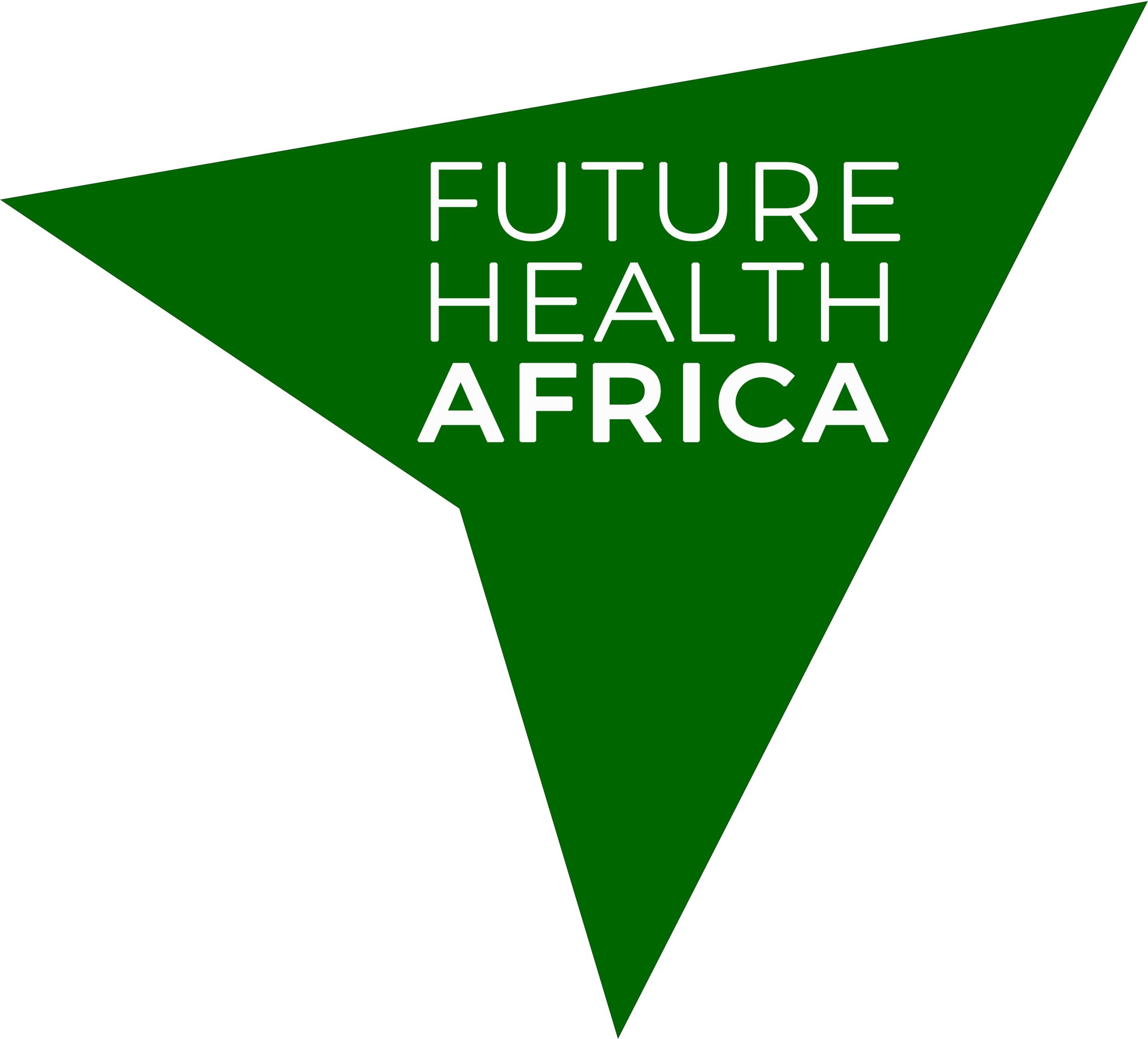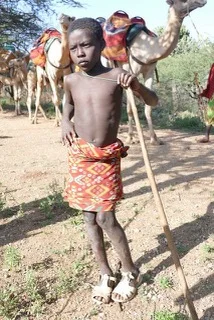future health africa:
TRANSFORMING LIVES - CASE STUDIES
TRAUMA TEAM
↓ Ltakani
Ltakani is a young herder from the Samburu region of Kenya. He was first spotted by a local ranch owner, Helen, injured and limping. One of his cows had fallen on top of him when he was down a well fetching them water, resulting in a dislocated hip. He was still looking after his herd. On asking what was wrong he just shrugged it off as his father said that young boys don’t hurt.
Fortunately, Helen knew that we come to Kenya every November and might be able to help. She arranged for us to see this boy in Nyahururu on our November 2018 trauma orthopaedic camp. He was assessed by physiotherapist Natalie Bond and surgeon Christoph McAllen and was listed for surgery later that week. In the meantime, he was admitted to the ward and his leg put on traction to try to pull the hip back into position and start stretching the muscles around the joint which had got very tight.
Dr Guy Wansbrough, and Consultant Anaesthetist Will Jewell, both paediatric specialists, led the reconstructive surgery of Ltakani’s hip. However, as with all of our cases, it’s a true team effort to ensure all goes well and safely. We work side by side with the local staff sharing skills to transform lives. Ltakani had a toy giraffe crocheted by a friend of ODP Chloe’s to keep him company in theatre.
After the surgery, Ltakani had plaster cast applied in a position to keep the hip safe and prevent it from dislocating again. The great news is that he was out of cast and walking, with crutches, for Christmas.
Normally in the UK someone would have follow up X-rays. This is nearly impossible in rural Kenya as the time, transport and costs of getting to a hospital and having the Xray taken are prohibitive for herding communities. Fortunately, in the modern era of smart phones, Helen was able to video Ltakani when she next came across him, whilst he was herding with his father. It’s wonderful to see how the surgery has given him a new lease of life. His father is so grateful, we have been given a pregnant goat in appreciation of our efforts. We are incredibly honoured by this, as we know how much this means within these rural communities.
Ltakani is a prime example of how our trauma orthopaedic camps make a direct difference to people’s lives in Kenya.
↓ Lopoe
Lopoe was attacked in his own home by a hippo resulting in multiple limb threatening injuries, including a fractured left leg and an extremely complicated elbow fracture, plus bite wounds to his head and left hand. The team spent four hours in theatre treating his injuries; both arms and one leg required complex operations. He was discharged within a few days and, after some recovery time, was able to work on his farm again.
↓ Rahma
Rahma is 32 years old and suffered a fracture of her right lower leg 18 months ago when she was a passenger on a motorbike. She chose traditional healing and unfortunately the fracture did not heal in a good position making it impossible for her to walk. She had an operation to Re- break the bone and fix it straight with a plate. She has 2 children and had separated from her husband. The children left with her husband and they live 3 hours drive away. Rahma sees them just once a year. She would like to own a business in the future which would enable her to see her children more often, and this operation will help her achieve that goal.
↓ Osman
Osman was 14 years old when we met him in Nairobi airport in April 2014. He had injured his leg six years prior to that whilst herding the family’s cattle. Unable to afford treatment, his leg had been deformed ever since. UK charity Medical and Educational Aid to Kenya (MEAK) found Osman whilst screening for eye patients on the Kenyan/Somali border and they took him initially to Lamu, a six hour journey over sandy tracks. Then, through their network of volunteers and the generous donation of a flight from SafariLink, MEAK managed to fly him and his uncle to Nairobi.
Here Osman had his leg x-rayed and a couple of days later he met up with the orthopaedic team from Devon at Jomo Kenyatta International Airport, where he was immediately examined and deemed suitable for surgery. He joined the team on the next leg of their journey to Kitale, a total journey from his home of approximately 1000km. Osman was clearly scared and anxious and didn’t speak or smile much on the journey. However, his beaming smile two days later when he awoke from his operation and saw a straight leg was priceless.
↓ Ayub
Ayub is a retired gentleman and a year before we met him he had an operation to fix a broken right knee cap. The knee did not recover well and unfortunately became very stiff. It was stuck in an almost completely straight position. For him this made it impossible to kneel to pray, use public transport easily or climb hills or stairs easily. We were able to operate and remove the scar tissue from the knee. Following the operation, there was good movement in the knee and a few days later Ayub was able to start using his knee for normal everyday activities.
GRASPIT
LEAH’S GRASPIT STORY
Leah Atieno was a participant at the Kisumu County Hospital’s first GRASPIT training in March 2016. Her positive engagement with the training led to her selection to become a GRASPIT Trainer. Leah’s response to this was “When I was told that I would be trained as a Trainer, I was so excited”.
Leah recalls that before being trained on GRASPIT, she was often “scared of handling emergencies” and earnestly admits “I would panic terribly and occasionally sneak out. Little did I know, that all I needed to do was as easy as ABCDE”.
Leah’s confidence in the assessment and initial management of sick patients, increased tremendously following her GRASPIT Training. She reports, “I no longer panic or sneak out. I enjoy doing the simple manoeuvres that GRASPIT taught me and this I have witnessed save many lives”.
Leah is currently one of the lead GRASPIT Trainers at Kisumu County Hospital (in addition to her ongoing role as a Clinical Officer). Leah reports that her role as GRASPIT Trainer has earned her great respect amongst her colleagues, including colleagues of different disciplines and age groups as the GRASPIT Course is designed for deliver to a multidisciplinary group of health professions. Now, Leah muses, “They call me teacher …. some just call me GRASPIT! I have earned a fourth name, GRASPIT – which I love so much. It gives me a lot of fulfilment each time someone calls me GRASPIT”.
Simply by practicing the systematic approach to the assessment and initial management of a sick patients taught on the GRASPIT Course, Leah has inspired many more to engage with the programme and acquire these life-saving skills. “When my colleagues see me handle patients with so much confidence they come to me and ask, when is the next training. [After the trainings] I have heard them giving feedback in the wards and hear them encouraging others to go for the training.”
Leah reports that she is encouraged to continue as a GRASPIT Trainer because of the positive feedback she gets from the staff trained and from the improved patient outcomes she has observed when patients are managed using the approach taught by the GRASPIT Course.
“I was trained on GRASPIT when I was three weeks into my internship. I didn’t know the impact this training would have on my professional and social life.”
Thanks to Ambiche Leah Atieno, Clinical Officer at Kisumu County Hospital, Kenya for sharing her truly inspirational stor
MATERNITY
MARY →
Mary is a young, Masai mother of four and was expecting her fifth child. She lived two hours from the rural Leperua clinic and had had the other babies in her hut, without the help of a registered midwife. She heard that the maternity project had visited Leparua and had brought safe birth packs for the nurse there to distribute to mothers who use the clinic. Mary set out to Leparua when she thought labour might be starting and had her baby shortly after arriving there. She received skilled care from the resident nurse Haggi and went home the next day with some essentials to keep her and baby healthy and safe in the first few weeks after birth. Mary showed other young women in her village the safe birth pack and encouraged them to attend the clinic.
Each safe birth pack costs just £4, it contains antibacterial soap, cotton and maternity pads, a cup and fortified cereal and two Lesso blankets. We also provide the clinic with a stock of warm baby clothes to send mothers in need home with. This encourages mothers to come to local health facilities and access trained birth attendants.
JAMES
James is a registered nurse/midwife. He qualified in 2011 and has been working since 2014 in a very remote clinic in the Isiolo district. His outreach facility serves a wide range of patients from the local community and he often manages emergency situations, stabilising mothers and babies before organising transfer to the referral hospital if required.
James was offered a place on an Obstetric emergency training day and attended the theoretical and skills drills sessions with colleagues from other clinics in the area. We asked for written feedback on how useful the training was for each of the candidates.
"The skills I have learned and refreshed here today will help me to serve the community with more confidence and better technique. I see many women with these problems every month and now I can manage these emergencies and show my other colleagues what I have learned."
James, Lewa, March 2019
OUTCOMES: 2009 to date
Thousands of patients have received orthopaedic assessment and hundreds have had surgery
The skills of emergency services/department personnel have been greatly enhanced and an emergency department was established in Nanyuki
Over 2000 health workers have been trained in GRASPIT
Over 1500 days of training in Quality Improvement & Leadership have been delivered and through this, over 30 quality improvement projects have been locally initiated including:
better handwashing
safer drug prescribing
shorter waiting times for clinics and surgery
provision of resuscitation equipment
better communication
better pain management
improving Community Health teams’ approach to tackling maternal and newborn deaths
Many mothers & traditional childbirth attendants have gained knowledge about safer childbirth
Rural clinics have been supported and extended to provide better care to needy communities
Several Kenyan health workers have benefitted from sponsorship (eg education, study visits, conference attendance) and are in turn now improving care
RESEARCH, PUBLICATIONS & REPORTS
Coming soon…














